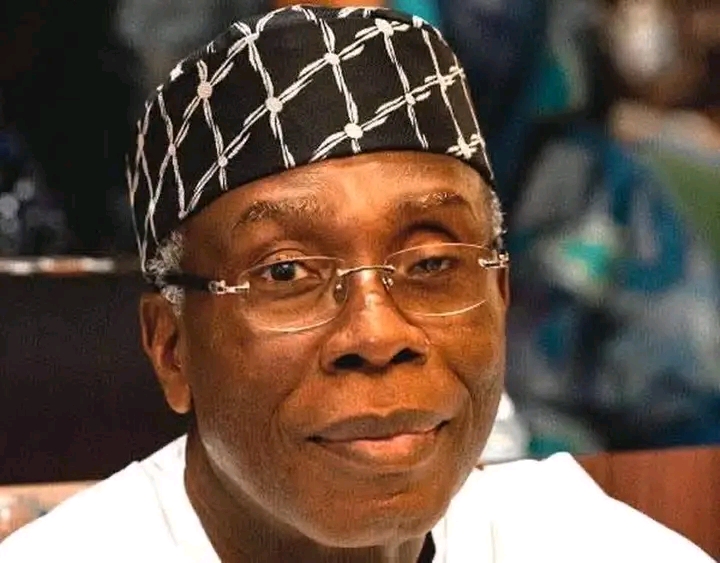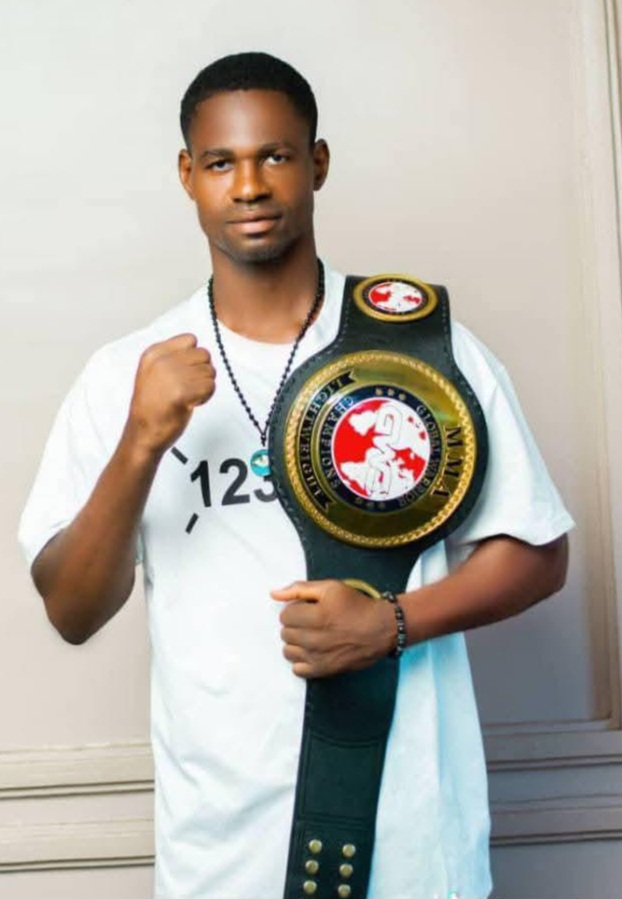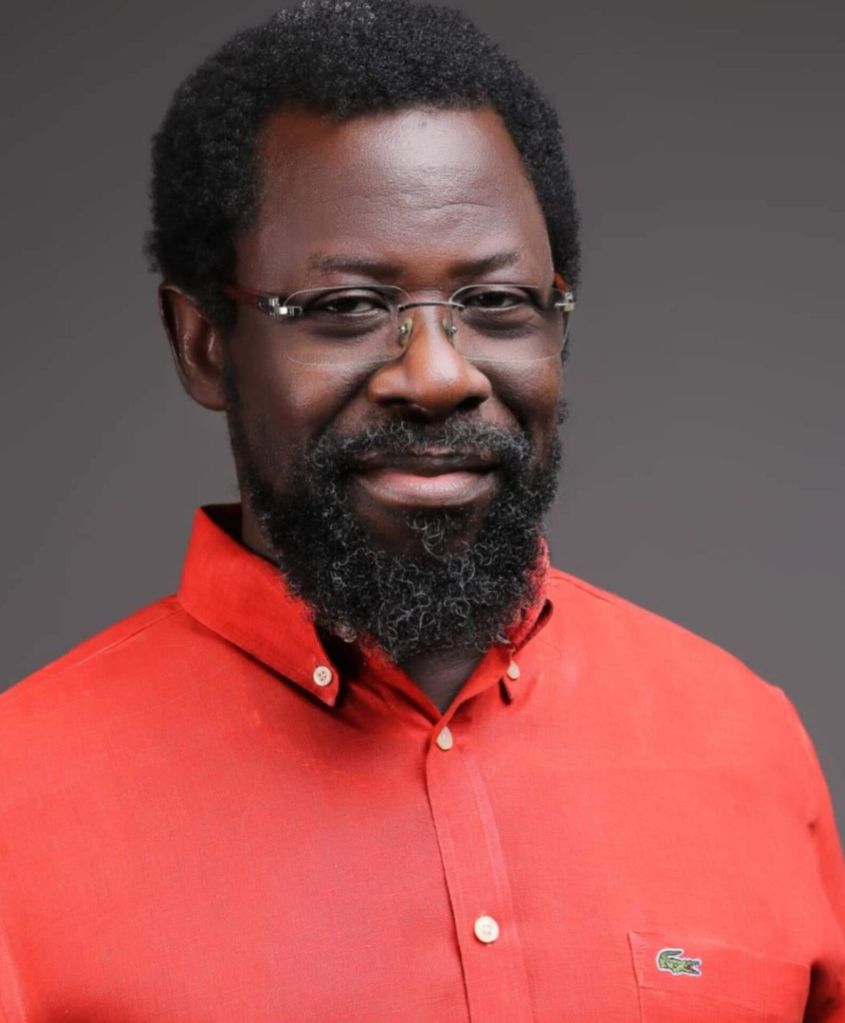
A GOLDEN VOICE- DELE FAROTIMI
By Kokomma Patrick
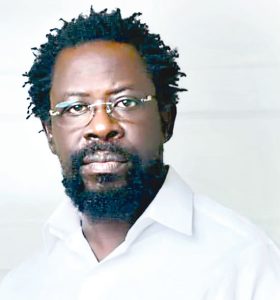
Dele Farotimi was born on 27 April 1968. He attended Fiditi Grammar School and later
attended the Lagos State University (LASU) where he graduated with an LLB( Bachelor of
Laws). During his University days,he served as President of the Student’s Union from the
year 1994/1995, and was called to the Nigerian bar in year 1999.
He is a lawyer, author and member of Citizen’s Rally Against Oppression (RAMINBA).As a
public speaker and member of Citizens’ Rally against Oppression (RAMINBA), Farotimi uses
his platform to campaign for the liberation of Nigerians from oppressive governance.
Farotimi time at the university marked a new beginning, he was not just a student but also an
active participant in campus life. He served as the President of the Student Union in the
1994/1995 academic year, a role that honed his leadership skills and deepened his
understanding of the socio-political issues facing Nigeria. His tenure as Student Union
President was marked by a commitment to advocating for students’ rights and improving the
academic environment. His academic achievements were complemented by his involvement
in various extracurricular activities. He was known for his eloquence and ability to articulate
complex ideas clearly and persuasively. These skills would later serve him well in his legal
career and activism.
He commenced his legal career as litigation counsel in the Law Firms of BASA & Partners,
Adesina Ogunlana & Co, and K.O. Tinubu & Co, amongst others. In the year 2002, he
established Dele Farotimi & Co (now DF Legal) a full-service Law Firm, providing legal
services to the real estate sector in Nigeria, infrastructure investment and development
companies, financial institutions, amongst others.
In 2018, Dele Farotimi made a significant decision to retire from active legal practice and
focus on activism. This transition was driven by his deep-seated belief in social justice and
his desire to contribute to the betterment of Nigerian society. Farotimi’s activism was not a
sudden shift but rather a continuation of his lifelong commitment to advocating for justice and
equality. Dele’s initial steps into activism involved speaking out on various social and political
issues. He used his platform to raise awareness about the systemic problems facing Nigeria,
including corruption, inequality, and human rights abuses. His articulate and passionate
advocacy resonated with many Nigerians who were frustrated with the status quo.
One of Farotimi’s key areas of focus was political reform. He believed that meaningful
change in Nigeria could only be achieved through a complete overhaul of the political
system. To this end, he became actively involved in various political movements and
organizations that were pushing for reform. His efforts were aimed at mobilizing citizens to
demand accountability and transparency from their leaders.
He became a vocal advocate for the rights of marginalized groups, including women,
children, and the poor. He worked with various non-governmental organizations to provide
support and resources to these groups, and he used his legal expertise to challenge unjust
laws and policies.
As an author of the book published in 2019 “Do Not Die In Their War”, in this book,he argues
that the country’s political elite have perpetuated a system of corruption and inequality that
has left the majority of Nigerians impoverished and disenfranchised. He calls for a revolution
of thought and action to dismantle this system and build a more just and equitable society.
In 2021, he also authored “Imperatives of the Nigerian Revolution,” which builds on the
themes of his first book. In this work, he outlines a comprehensive plan for political and
social reform in Nigeria. He argues that true change can only be achieved through a
grassroots movement that empowers ordinary Nigerians to take control of their destiny. He is
passionate about the birth of a new and better Nigeria.
In his words, “Before I came to Lagos in 1985, I had lived my entire life in Ibadan, Oyo State.
I went to primary school in the ancient city, and for my secondary school education, it was to
my mother’s hometown, Fiditi: the home of fruits. The unsuccessful attempt at A’ Levels was
in Oyo town, and the last gasp effort to pass WAEC and thereby avoid my father’s threat of a
mechanic workshop apprenticeship, was made in Ile-Ife. I was your archetypal “Arokean bogey”.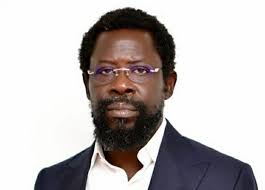
I found the Okokomaiko of 1985 not too much of a culture shock. But the madness that I had to negotiate from the drop off point at Ojota, were harrowing experiences for me. At least it was, until I began to embrace the lunacy myself. The love affair with insanity did not come by accident. Yet it did happen by accident. It was at Oyingbo Bus Stop. The Coaster buses to Okokmaiko had their own dedicated lane at the stop, but it was at the peak hours of the day, and must have been around 7PM. There were at least 20 people for every available seat on the buses. I came from a culture of polite orderliness, and Ibadan buses were rarely ever full. We never rushed like the war that I daily witnessed with perplexity in the badlands into which I had been dispatched in coming to a university in Lagos. I must have missed untold number of buses because of my reluctance to join the
melees to enter them, until desperation enabled my factory fitted, and uniquely Nigerian madness. I was all of 17 years old, and I was seeing aged men, less agile, women, young and old, securing seats in the buses as they filled up and left, and I determined to get with the program as well. A couple of failed tries later, and I was at the door and on the ramp, blocking my path was a wee young babe, I was still busy admiring her elvish beauty, when she shoved me aside, I landed on the concrete tarmac with a few bruises, and a lesson learnt: insanity is the normalcy in this town. Toughen up, or die. I went back to Ibadan at the end of the semester, a true Lagos boy. Or I had at the least began my journey to becoming one. Everyone and everything seemed too slow when I returned home on holiday. I was convinced that they were all fed something that worked to slow down the day, the people, and just about everything else. The genteel courtesy of the Ibadan road users became extremely irritating, seemingly unnecessary, and time wasting in my view, and I had little patience with the patient courtesies that are part and parcel of theIbadan way of life. I had become estranged from the land of my youth. Lagos had adopted
me, and I had been orphaned by Ibadan.
The normalized insanity that I embraced in my acculturation to Lagos and the frenzied
existence that masquerades as “living” in Lagos, has overtaken Nigeria itself. We have
become a post apocalyptic society, insanity has been completely normalized to the point
where to be sane in Nigeria, is to be truly insane. We have inverted normalcies beyond the
point of recognition.
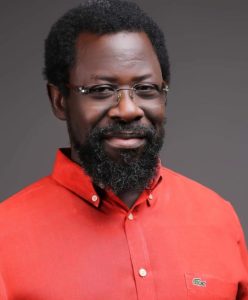
‘Nigerians are fantastically corrupt’ – David Cameron.
The howls of derision and protests that followed his knowledgeable declaration, served to obscure the true intent and meaning of his words in the consideration of the plebes, but those cursed with the capacity for thought, were able to decipher his words: what he was seeing in Nigeria, with the benefit of his access to classified and privileged information, did
not qualify as corruption, because he couldn’t even find the benefit derived by those that were doing the stealing, and he could see how long that it had been going on, and he couldn’t wrap his mind around the fact of our very humanity, in the face of the evidence that he beheld. He was charitable. We are not corrupt. There is nothing about us that is fantastic either. We are not fantastically corrupt. We have been fantastically perverted. For a Nigerian to feel at home in a foreign land, is to end up in jail, our normalcy is their own insanity, our order, the very meaning of chaos. We are a land untouched by sanity. Perversion is an abuse of purpose. We are not
corrupt, we are perverted. The many years in which corruption have become normalized, have served to have the effect of rendering several generations of Nigerians perverted, with a schizophrenic mindset that recognizes the validity of law and order, outside Nigerian territory, but instinctively and as a matter of reflexes, discards the very same laws and order, to embrace the pervasive, and endemic insanity, of the Nigerian state, once within its territory. A failure to embrace the insanity, might endanger your very lives. We are getting to an inflection point in the history of the Nigerian state: we are going to be deciding soon, whether we are crazy enough to birth the Nigerian nation of our dreams, or if we are mad
enough, to allow our collective insanity, to become the normalcy we bequeath to the coming
generation. However, on the 3rd of December 2024, he was arrested and taken from Lagos to Ekiti State
to face trial for allegedly defaming renowned lawyer and founder of Afe Babalola University
Ado-Ekiti, ABUAD, Aare Afe Babalola (SAN) in his book titled, ‘Nigeria and its Criminal
Justice System’. Farotimi had alleged in the book that Babalola corrupted the Supreme Court to procure a fraudulent judgement in the service of his clients, The law firm of S.B. Joseph & Co.
doctored the Supreme Court’s original judgment to obtain an execution warrant.
Babalola denied all allegations, claiming they were deliberate falsehoods intended to
damage his reputation and the legacy of his law firm, established in 1965.
He demanded the recovery of all copies of the book from circulation. His arrest turned his
book “Nigeria and its Criminal Justice System” to Amazon’s best seller. He was granted a ₦50m bail by a federal high court in Ado-Ekiti, Ekiti State, in a defamation case filed by Aare Afe Babalola.
Dele Farotimi is also known for his role as the official spokesperson for the Labour Party Presidential Campaign in 2023.
He is happily married to Funmi Farotimi and they are blessed with 3 children – Igbayilola,
Ajibola and Afolarin. His early years were marked by a strong sense of curiosity and a passion for learning. Growing up in a supportive family environment, Farotimi was encouraged to pursue his
interests and develop his talents. His parents, recognizing his potential, provided him with
the resources and opportunities to excel academically.His dedication to social justice and
political reform continues to inspire many Nigerians and leave a lasting landmark for
generations.
